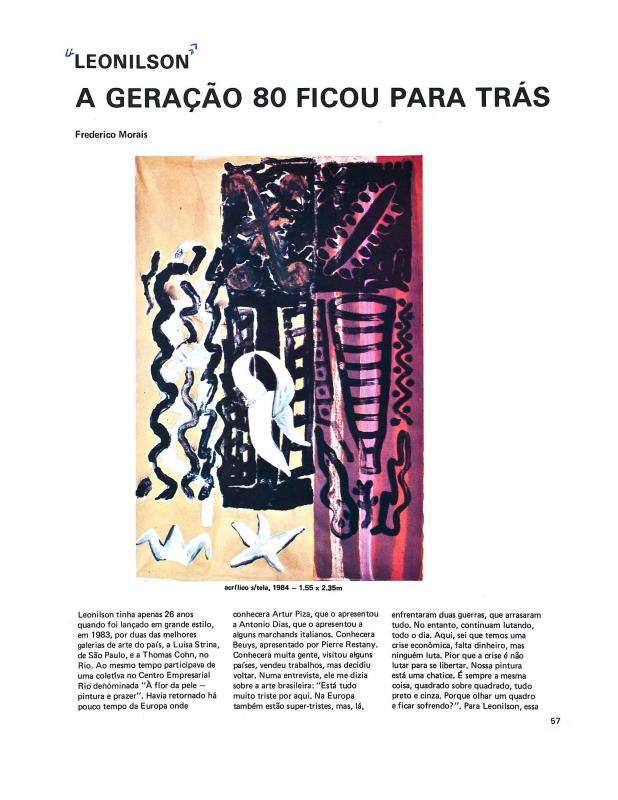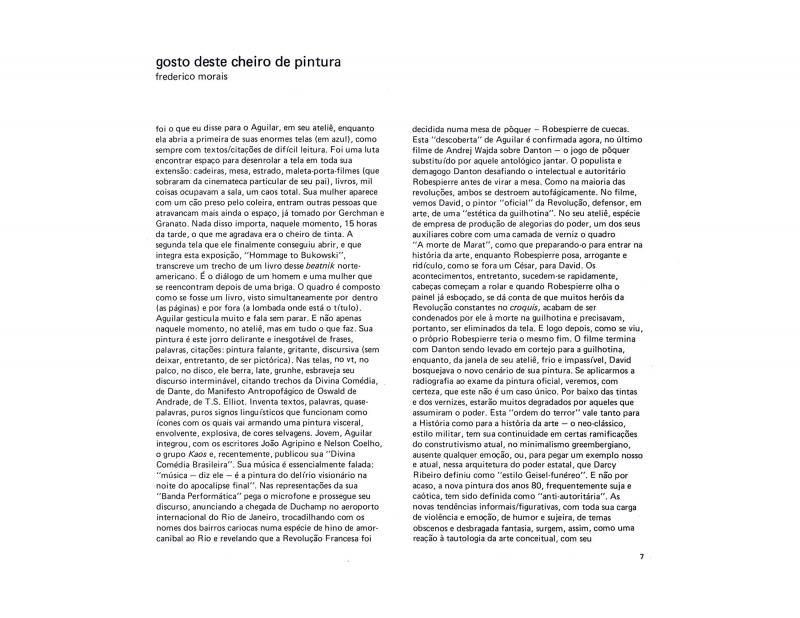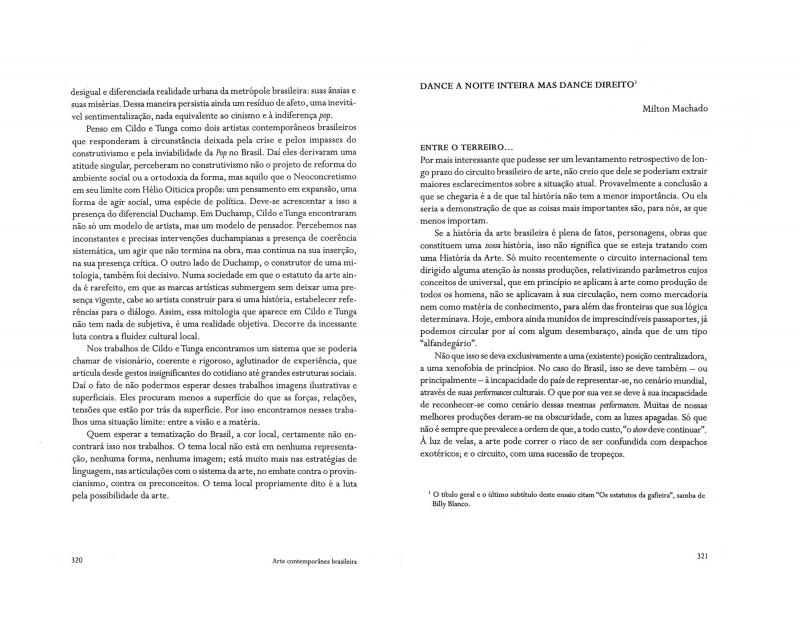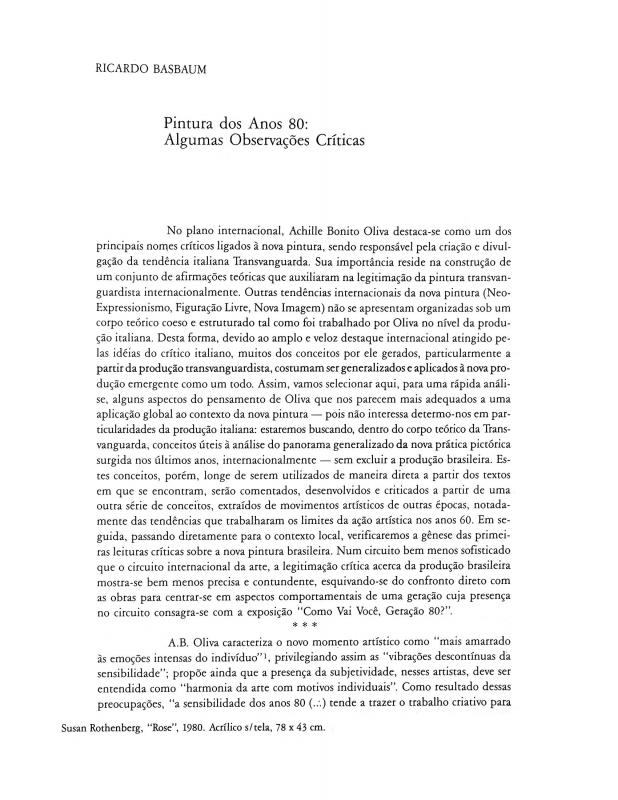Founded in the 1950s by the architect Oscar Niemeyer (1907?2012), the journal Módulo went beyond its scope as a professional journal to stimulate some debates regarding cultural institutions and the arts in the late 1970s and 1980s. When the long military dictatorship (1964?85) was coming apart, this journal became a good vehicle for information and thinking about art. It supported the artists known as the “Geração 80.”
This text appeared in a special edition of the journal Módulo dedicated to the exhibition Como vai você, Geração 80?, held at la Escola de Artes Visuais do Parque Lage (Rio de Janeiro, 1984). This exhibition was curated by a team of three: Marcus de Lontra Costa (b. 1954), Paulo Roberto Leal and Sandra Mager, who brought together the work of 123 artists. With the passage of time, this became the framework out of which arose the “Geração 80” and the idea of “return to painting.” The latter was similar to the European movement advocating painting’s “retour à l’ordre,” which followed the historical avant-garde movements throughout Europe.
Frederico [de] Morais (b. 1936) is one of the outstanding personalities among art critics in Brazil. When he began his work as a critic, he was initially tied to the film world in Belo Horizonte with arts-related materials in several newspapers in that city. Subsequently, he took a stance in defense of unconventional expressions of art and the experimental stamp of the avant-gardes. Around 1967, he moved to Rio de Janeiro, where he spent years working as an art critic for daily newspapers, both the Diário de Notícias and O Globo. He was one of the most active “committed” critics in the 1960s and 1970s, supporting various avant-garde movements and exhibitions during that period as well as serving as a curator for some of these shows. The emergence of the Geração 80 led him to rethink certain political issues and theories.
Morais’s involvement with the “Geração 80” led him to other related texts. See, for example, “Leonilson: a Geração 80 ficou para trás” [doc. no. 1110961]. Another text that specifically addresses Brazil’s manifestation of the “retour à l’ordre” is “Gosto deste cheiro de pintura” [doc. no. 1110992]. The phenomenon of the “Geração 80” generated countless texts and essays, like Milton Machado’s “Dance a noite inteira mas dance direito” [doc. no. 1110945], and Ricardo Basbaum’s “Pintura dos anos 80: algumas observações críticas” [doc. no. 1110972].




